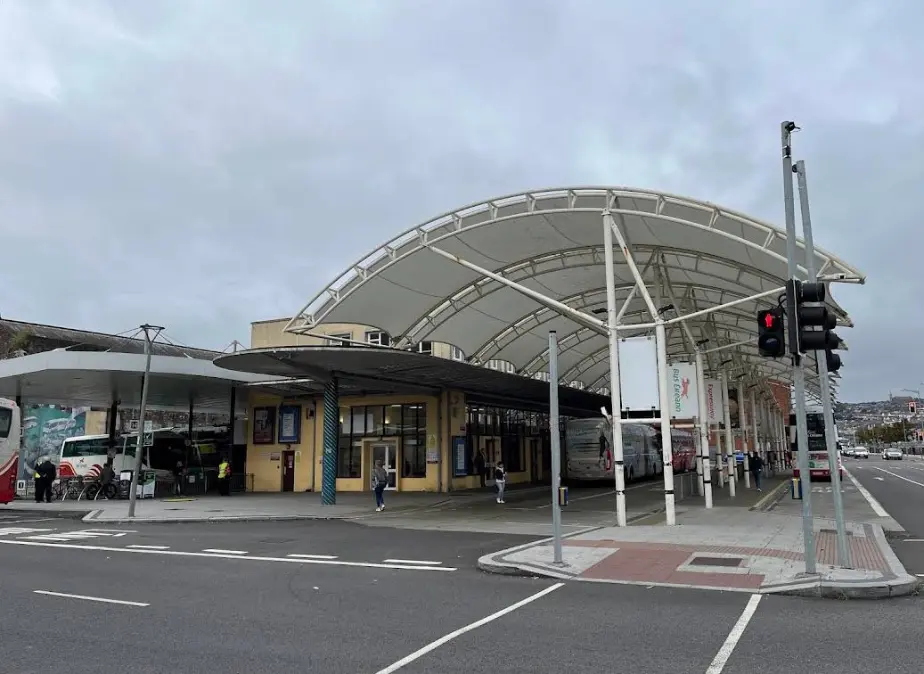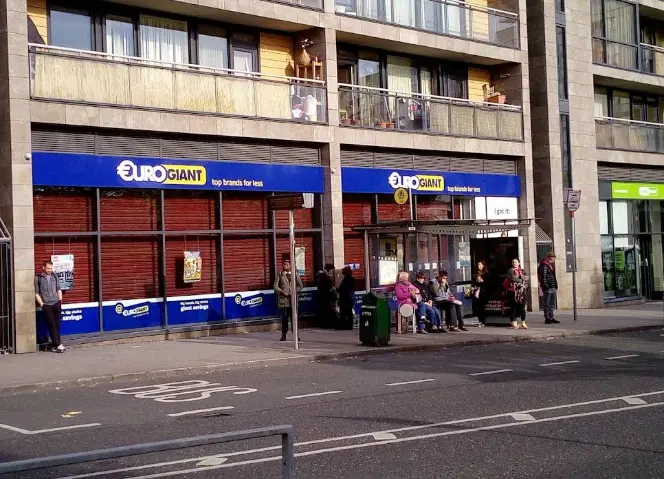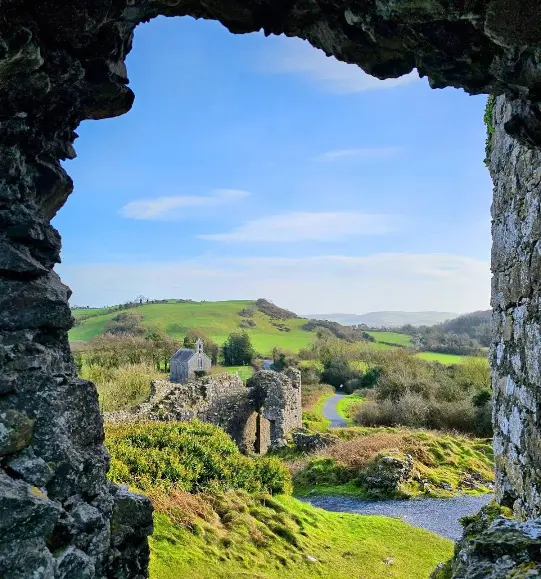If you are planning a trip from Dublin to Cork and you are tired of travel guides that sound robotic or confusing, you are in the right place. Here in Dublinz you will find the real choices that make a difference in your journey.
You will get clear and updated travel times, honest pros and cons, and simple tips to help you choose the best way to go. It doesn’t matter if you care about comfort, speed, or budget; this travel guide gives you everything you need in one place.
You can trust this guide because it is written with real travellers in mind. Every detail is practical, tested, and designed to help you travel smarter. By the end, you will know exactly which option suits your trip and how to make the most of your time once you arrive in Cork.
So, keep reading to know everything about how to get from Dublin to Cork easily!
How Far and How Long
The journey between Dublin and Cork covers around two hundred sixty kilometres, or roughly one hundred sixty-two miles by road. It is an easy and flexible trip, and you have a few solid options depending on how you like to travel.
Let’s start with driving. If you head straight through, it usually takes just under three hours. That said, real life often adds a little extra, like a bit of traffic near Dublin or a quick stop for coffee, which can easily stretch the time. Still, if you enjoy being in control of your schedule and making small stops when something catches your eye, the drive can be a very enjoyable one.
If you would rather relax and let someone else handle the route, the train is hard to beat. Most intercity services take about two hours and thirty-five minutes to two hours and fifty minutes, so you can reach Cork comfortably without worrying about traffic or tolls. It is one of the fastest ways to travel between the two cities and drops you right in the centre, ready to start exploring.
Now, if you are keeping an eye on your budget, the coach is worth considering. It takes a little longer, usually between three and a half to four hours, depending on the operator and road conditions, but it often costs less than the other options. It is a steady and simple way to travel if time is not a big concern.
Flying might look faster on paper, but that is rarely the case. Direct flights are limited, and most involve connections that add extra time. By the time you include airport transfers, check-in, and waiting, the train usually comes out ahead for overall convenience and peace of mind.
The Train Options For Dublin to Cork
If you want the easiest and most comfortable door-to-door experience, the train is your best choice for Dublin to Cork trip. Services run from Dublin Heuston to Cork Kent Station, right in the heart of the city. That means you can step off the train and start exploring without worrying about long transfers, parking, or traffic delays.
The journey itself is calm and pleasant. You get spacious seats that make it easy to open a laptop, read a book, or simply rest while the countryside rolls by. The fastest trains take about two hours thirty five minutes, and even the slower ones keep a steady, reliable schedule. To get the best value, try booking early since fares tend to rise as the travel date approaches.

Go for the train if you like predictability and comfort more than the flexibility of stopping along the way. It is a great fit for couples planning a weekend break, solo travellers who want quiet time to work or unwind, and families who appreciate a smooth, stress-free trip. Business travellers also find it convenient since it runs between two city centres with dependable timing.
Before you book, keep a few simple things in mind. Check the timetable a day before your journey, as occasional maintenance or service updates can shift departure times. If you want the lowest fares, plan ahead and try to avoid peak commuter periods when seats fill quickly. A little preparation helps you travel comfortably and arrive right on time.
The Coach Option and Who Should Take It
If keeping costs low is your main goal, then the coach is a smart and practical choice. Regular services connect central Dublin with central Cork throughout the day, and some even start at the airport, which can be handy if you are flying in and heading south straight away.
Travel times are steady but a little longer than the train. On a clear run, the journey takes around three hours. During busy periods, especially around rush hour, it can stretch to three and a half or even four hours. Still, for many travellers, the savings make the extra time worthwhile.
Choose the coach if you are flexible with your schedule and want the most budget-friendly way to travel. It works especially well for students, small groups sharing costs, or anyone who values a direct, simple ride with plenty of luggage space. Most modern coaches include Wi Fi and charging points, but it is always a good idea to bring a power bank and a few snacks just in case.

Do keep in mind that coaches can be affected by traffic, so if you have a tight schedule, plan a little buffer. Booking an earlier service is a smart move because it gives you breathing room if delays pop up. Many operators now allow online seat reservations, which adds comfort and peace of mind for longer trips.
If you like saving money and don’t mind a slightly slower pace, the coach makes for a relaxed and reliable journey from Dublin to Cork.
The Driving Option for Dublin to Cork
If you love having control over your journey, driving is the option that gives you the most freedom. The route from Dublin to Cork follows the main motorway heading south and covers around two hundred fifty to two hundred sixty-five kilometres, depending on where you begin and end your trip. On a clear day, the drive usually takes about two hoursand fifty minutes, but it is wise to allow extra time for M50 traffic near Dublin, toll stops, and parking once you reach Cork.
Choose to drive if you enjoy setting your own pace or if you are travelling with family or friends who appreciate a bit more space and flexibility. Having your own car means you can stop when something interesting catches your eye and shape the journey around what you want to see. It is also the only option that lets you explore multiple attractions in one day, a great way to turn a simple transfer into a small adventure.

If you plan to make stops along the way, there are some wonderful detours worth your time. The Rock of Dunamase offers a quick scenic climb with sweeping views, while the Rock of Cashel invites you to spend an hour or two exploring medieval ruins. Cahir Castle is another favourite, perfect for wandering through one of Ireland’s most impressive Norman fortresses. Each stop deserves at least half an hour to an hour, so if you want to visit more than one, expect the journey to become a full-day outing.
Before you set off, use a reliable route planner to check for roadworks or closures that might affect timing. With a little preparation, driving from Dublin to Cork can feel less like a commute and more like a relaxed road trip filled with small discoveries along the way.
The Flying Option and Who Should Consider It
Flying can make sense for certain travel plans, but it is rarely the best choice for a routine trip between Dublin and Cork. Direct flights are limited, and most itineraries include connections, which add extra time for check-in, transfers, and waiting. For the majority of travellers, the train offers a faster and simpler journey from city centre to city centre.
That said, flying can work if you have an international connection that naturally lines up with arriving in Cork, or if a private charter is part of your plan. Outside of these specific situations, commercial flights are usually not the most practical option.
How to Decide Which Option is Right for You
Let’s make this Dublin to Cork trip simple. Start by thinking about what matters most for your trip, then match that to the advantages we have discussed.
If speed and predictability are your top priorities, the train is the clear choice. It takes you directly between the city centres on comfortable, regular services. For planners, professionals, or anyone who values a reliable schedule, the train is the best default option.
If keeping costs low is more important, the coach is a strong pick. It may take a little longer during busy times, but the savings are significant, and there are frequent departures. Booking early ensures you get the lowest fares.
If you want flexibility and the freedom to stop whenever something catches your eye, driving is ideal. This option works best if you are willing to trade some convenience for the ability to explore along the way. You can plan one long day with multiple stops, or split the trip into two to fully enjoy the sights.
Finally, if your schedule is tightly linked to flights, or you need a very specific timing that only air travel can meet, consider flying. For most travellers, however, the train remains the simplest, most efficient choice.
Quick Traveller Profiles to Help You Decide
To make your choice even easier, think about which type of traveller you are. If you are travelling solo and want minimal fuss while catching up on work or reading, the train is ideal. If you are on a tight budget with friends, the coach offers the most cost-effective option. If you love road trips, enjoy detours, and want to create an itinerary of castles and coastal towns along the way, the car is your best friend. For travellers whose schedules depend on unusual flight timings, flights may work, but be realistic about the total journey time.
What to Do Once You Arrive in Cork
Cork offers plenty of high-value experiences, even if your stay is short. Spend your first hours wandering the English Market, tasting local cheeses, pastries, and fresh produce. A short drive takes you to Cobh, known for its colourful harbourside streets and maritime museum. For food lovers, Kinsale is perfect, with excellent restaurants and scenic coastal views. If you want the classic photo opportunity, visit Blarney Castle, try the famous kiss, and enjoy a stroll through the gardens. Spirit enthusiasts can spend a relaxing half day at the Midleton Distillery with tastings included.
If your time is limited, pick one main activity and enjoy it fully rather than rushing through multiple sites. Cork is compact but full of flavour, and even a simple market lunch can become the highlight of a short stay.
Practical Tips That Make Dublin to Cork Trip Easier
Check timetables the day before you travel and book in advance when possible. Advance rail and coach tickets often save money, and weekend or holiday travel can fill up quickly. If you are driving, check tolls and parking availability in Cork, and avoid the M50 around Dublin during peak hours.
For coach or train travellers, bring a power bank, snacks, and a small day bag to make your journey more comfortable. If you have a tight connection on arrival, build in a buffer like weather, road conditions, or service updates can affect timing. Planning a realistic margin keeps your trip smooth, enjoyable, and stress-free.
Final Words and a Friendly Nudge
Now you have all the facts and practical guidance to make your choice with confidence. If you want a fast and relaxed journey, the train is the way to go. If keeping costs low matters most and you don’t mind taking a bit longer, the coach is a smart pick. If you enjoy freedom, adventure, and the chance to explore along the way, driving allows you to turn the journey itself into part of the trip.
Flights can work if your schedule really requires them, but for most travellers, trains will still be the quickest and simplest option between Dublin and Cork. Choose the mode that fits your priorities, and enjoy the journey as much as the destination.
Dublinz’s Facebook and Instagram pages offer more exciting and helpful tips to make your trip easier. Be sure to check them out!
Comments are closed.